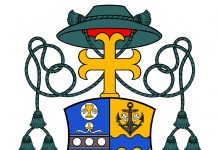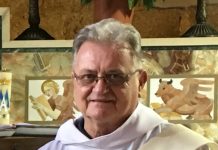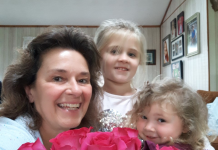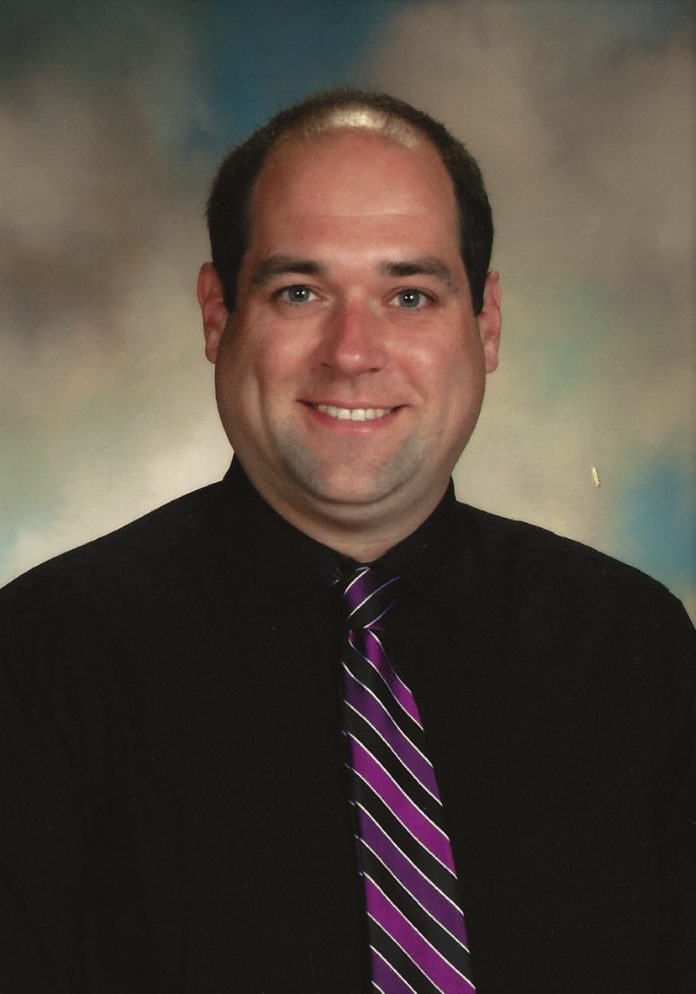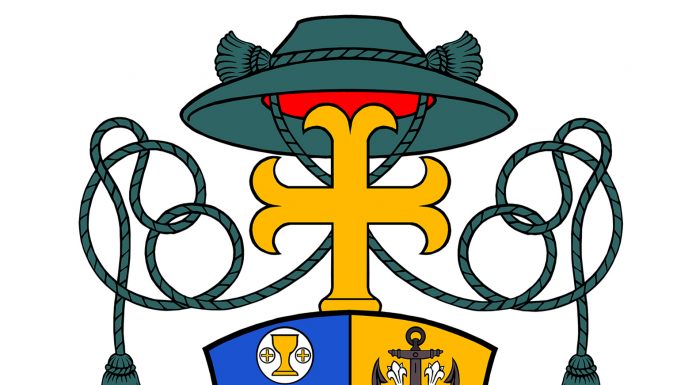Column by Jonathan Nagy
“Some teachers taught the curriculum today. Other teachers taught students. And there is a big difference.” –Anonymous
When I think back nearly twenty years ago to one of my first education classes in college, I remember the professor telling the class to begin to develop a philosophy of education. I remember searching and searching the internet to find just the perfect quote to sum up what a teenage college student thought about teaching. I settled upon this quote that back then. I found to be brilliant and used it to sum up everything that I aspired to be as a teacher.
I could not be more wrong.
Over my 16 years of fulfilling teaching years at Bishop Carroll Catholic High School, I like to think that my teaching philosophy has changed and adapted over time. I implement new technologies and strategies, I assign wonderful new projects, and I develop better interactive lessons for my students. But one goal has remained the same and even strengthened each year: To reach every student in some way. I know I am not a superhero teacher, and to reach every student may seem like an impossible task, but allow me to break down my thoughts.
I set out every day with the goal in mind to reach one student. I have no plans of who that one student will be, nor do I know if I am going to be successful in my endeavor. Yet I enter my classroom determined to make an impact on someone. I have resolved myself to even thinking that if I positively reach even one student in my career, I have made a difference in the world.
Few things excite me more than when I know I have finally reached a student. The proverbial light bulb goes off, their eyes light up, they have their “ah-ha!” moment, and I feel like I have broken through a very tough wall. The joy in seeing a student understand and begin to thrive is a feeling that I cannot even begin to describe. I feel pride not only in the student, but in my own ability to get through to them.
In the Gospel of Matthew, Chapter 15, Jesus tells the Parable of the Lost Sheep: “Suppose one of you has a hundred sheep and loses one of them. Doesn’t he leave the ninety-nine in the open country and go after the lost sheep until he finds it? And when he finds it, he joyfully puts it on his shoulders and goes home. Then he calls his friends and neighbors together and says, ‘Rejoice with me; I have found my lost sheep.’ I tell you that in the same way there will be more rejoicing in heaven over one sinner who repents than over ninety-nine righteous persons who do not need to repent.”
If I get so excited about reaching one student with a lesson in a history class, how does God feel when he finally reaches through to one of us, his lost sheep? There are days I feel like throwing in the towel with frustration over my inability to explain and a student’s struggle to understand. God has BILLIONS of individuals he is trying to reach every single day. He waits patiently for the lost sheep to come back to him. He also goes out seeking the lost and rejoices in their return.
Jesus told many parables about lost things – sheep, coins, the prodigal son, etc. In each, he describes the meticulous process of the search and the rejoicing in the find. I remember as a young child (and even as an adult) looking for something I could not find. My mother would always say, “It will be in the last place that you look!” While there is some painfully humorous truth to that statement, it could also describe how God looks for us.
By equipping us with free will, God knows that many will fall off the beaten path, and he is ok with that! He knows that each of us goes through our own journey but hopes that we find our way back to him. He puts people and events in our lives to help guide our way. In a recent side tangent in class (yes, I can be easily distracted), I began talking to my students about their own faith journeys. I explained that everyone is on their own path. No path is right for the same two people, and everyone gets different things out of their experiences in their personal relationship with God. Some people enjoy quiet prayer and conversation with him. Others like a boisterous praise and worship concert where they sing their hearts out for the Lord. Some even find God, as St. Therese of Lisieux said, in doing little things for him and others in our own little way. Each person’s pathway may be different, but they all lead to the same place – back to our Father.
Theodore Roosevelt once said, “Nothing in the world is worth having or worth doing unless it means effort, pain, difficulty…I have never in my life envied a human being who led an easy life. I have envied a great many people who led difficult lives and led them well.” Life is definitely full of pain and difficulty. Everyone struggles with something different, and we all handle things in our own unique way. Following the will of God is not an easy task, but it is worth it.
In another recent lesson in my classroom, I was covering the Holocaust with my senior AP U.S. Government and Politics Class. I spoke about the atrocities of what happened and began speaking about how to overcome hatred and prejudice. I asked the class, “How do we stop something like this from happening again.” One student said, “You can’t. One person can’t make a difference.” I explained that Hitler was one person, and his sadistic and disturbing views caused the event that we were studying. Another student said, “But Mr. Nagy, doing the wrong thing is so much easier than doing the right thing.”
Exactly, my child. Evil is always easier and more attractive, but that does not make it worthwhile.
As we move through Lent, one of the most touching hymns is Gregory Norbet’s, “Hosea.” Certain phrases of the song read, “Come back to me with all your heart. Don’t let fear keep us apart…The wilderness will lead you to your heart where I will speak… Long have I waited for your coming home to me and living deeply our new life.” God is waiting. He HAS been waiting. He will continue to wait until we are ready to make our way back to him.
As Norbet wrote in the hymn, “Don’t let fear keep us apart,” we let fear get in our way of our relationship with God. We often feel guilt and shame for our sins and are fearful that God could never forgive us for what we have done. God can and will forgive us for EVERYTHING that we have done! We only must be true to him and to ourselves when we ask for forgiveness.
Norbet continued with the refrain of the hymn, “Long have I waited for your coming home to me and living deeply our new life.” We have a finite amount of time on earth to do God’s will before we are called home to him. It has been a long, long year for many people, especially those who have been away from loved ones. Being able to reunite with family and friends after such a long period is something many have looked forward to for quite a while. God has been waiting for us to make our return to him. Many have been away from him for a long time.
We always invite people to go out for dinner or to a party, but have we ever invited someone to pray with us or attend Mass with us? Why is it so difficult for us to do that? Look at it this way – we are inviting them to a banquet, the banquet of our Lord, in his house. Sometimes a simple invitation is all someone needs to help them get back to God. Individuals have been away from the Church and God for many reasons, and many want to return but have that fear that is getting in the way. A simple gesture of love and care from a neighbor can make a world of difference. You can be that difference. You can be that neighbor. You can help return one of the lost sheep to Jesus. The joy the Father will feel when one returns to him can only be matched by the overwhelming comfort of the one being reunited with him.
President John F. Kennedy once said that, “One person can make a difference, and everyone should try.” Imagine if everyone took President Kennedy’s sentiment to heart. The efforts put into making a difference would alone make a difference. Take the time to reach out to someone and help them get back to God.
As I continue my daily affirmation of reaching just one student, I hope and pray that I am reaching many more. I may never know the true impact of what an experience in my classroom has done for the hundreds of students that I have taught over the years. I will probably never know or hear how I have reached them, and that is ok. I know, in my heart, that I have done everything possible to reach them, by giving them the tools to succeed and the encouragement to do it.
With Easter fast approaching and we celebrate Jesus’ rising from the dead, help find those lost sheep and welcome them to rise with him. You may never know the impact your kind words and invitation may make on someone’s eternal salvation!
Jonathan Nagy, M.Ed., is the Dean of Students and Social Studies teacher at Bishop Carroll Catholic High School in Ebensburg. He is also the Music Director at the Basilica of Saint Michael the Archangel in Loretto.


